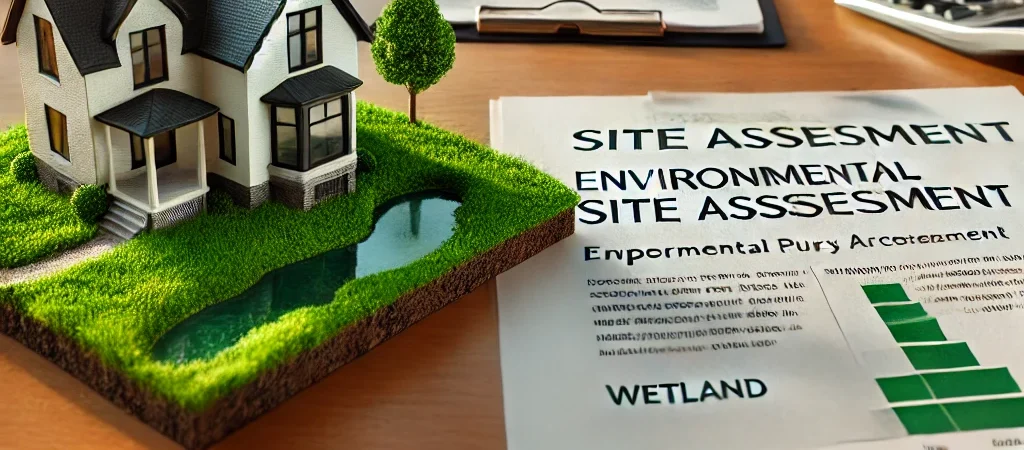Why Environmental Law Matters in Real Estate Transactions
Environmental issues can drastically impact the value, usability, and legal standing of a property. Whether you’re purchasing vacant land, a commercial building, or a residential home in Ottawa, understanding environmental regulations is essential to making an informed, risk-aware investment.
Many buyers overlook environmental compliance until it’s too late—only to discover hidden contamination, protected habitats, or usage restrictions. These issues can result in costly cleanups, government orders, or even lawsuits. That’s why working with an experienced real estate lawyer in Ottawa ensures your property purchase is legally secure and environmentally sound.
Key Environmental Laws That Affect Property Transactions
In Ontario, several laws govern environmental responsibility and land use. The most significant for property buyers include:
1. Ontario Environmental Protection Act (EPA)
This law holds property owners liable for contamination—even if they didn’t cause it. Buyers who acquire contaminated land without doing their due diligence can be forced to pay for costly remediation under the “polluter pays” principle.
2. Ontario Water Resources Act
This act governs water usage, wastewater management, and potential contamination of groundwater or nearby waterways. It impacts rural properties with wells or septic systems and development near water bodies.
3. Conservation Authorities Act
Properties near rivers, wetlands, or floodplains may fall under a conservation authority’s jurisdiction. This can limit what can be built, altered, or developed, even on privately owned land.
4. Federal Species at Risk Act (SARA)
This act protects endangered species and their habitats. If your property contains protected plants or animals, development may be restricted or require special approvals.
When to Conduct an Environmental Assessment
Environmental due diligence is critical for certain property types—especially those with commercial or industrial history, or undeveloped land. An Environmental Site Assessment (ESA) is the best way to uncover hidden issues.
Phase I ESA
This initial study involves a review of records, site inspection, and interviews. If there’s no evidence of contamination, the property is cleared. If concerns are found, a Phase II ESA is recommended.
Phase II ESA
This includes soil and groundwater sampling to confirm the presence and extent of contamination. If contaminants are found, a remediation plan may be required before the property can be used or sold.
Risks of Buying a Contaminated Property
Failing to identify environmental hazards can expose buyers to serious legal and financial risk. Some consequences include:
– Government cleanup orders
– Inability to obtain financing or insurance
– Reduced property value or resale complications
– Legal liability for third-party damage (e.g., contamination spreading to neighboring land)
A real estate lawyer helps coordinate environmental assessments and reviews reports to ensure legal compliance before closing. Learn more at https://realestatelawyerottawa.ca/.
Residential Buyers: What to Watch For
Even residential properties can be affected by environmental regulations. Common issues include:
Underground Oil Tanks
Older homes may have unused underground storage tanks, which can leak and contaminate soil. Removal and remediation can be expensive and may trigger regulatory involvement.
Asbestos, Mold, and Lead Paint
While not always subject to environmental law, these hazards can affect habitability and legal disclosure requirements.
Septic Systems and Wells
Rural homes must meet specific water safety and sewage disposal standards. Legal review ensures these systems are inspected, approved, and compliant with current regulations.
Legal Tools to Protect Property Buyers
A skilled real estate lawyer uses several legal strategies to protect you when environmental risks are possible:
Environmental Clauses in Purchase Agreements
Your lawyer can insert conditional clauses requiring an environmental assessment and allowing you to withdraw or renegotiate if issues are discovered.
Title Searches and Property History
Examining past uses of the land can uncover red flags. A lawyer will also investigate municipal records and zoning history for environmental concerns.
Title Insurance
While not a substitute for due diligence, some title insurance policies offer limited protection against environmental issues, such as cleanup orders that weren’t previously disclosed.
Due Diligence Is Your Best Defense
The key to avoiding environmental liability is due diligence. With legal guidance, you can identify risks early, make informed decisions, and proceed with your real estate transaction confidently.
Whether you’re buying a downtown commercial building, a rural acreage, or a family home in a conservation area, a knowledgeable Ottawa real estate lawyer ensures that your investment is not only sound—but sustainable and compliant.
Protect Your Property, Protect Your Future
Environmental compliance isn’t optional—it’s fundamental. At Real Estate Lawyer Ottawa, we guide buyers through the complex intersection of property law and environmental regulation, so you can purchase with peace of mind.
From site assessments to contract conditions and regulatory oversight, we’re here to protect your real estate investment—today and for years to come.









